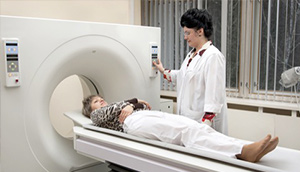Understanding voices
Hearing voices, or auditory hallucinations as psychiatrists call them, is a common experience for people living with schizophrenia. In fact, it is so common that it is considered to be one of the principal indicators when considering a diagnosis. Voices are often one of the most difficult experiences to cope with and sometimes they can lead to dangerous behaviour. They remain one of the biggest issues for people with schizophrenia and should be taken very seriously by doctors and carers.
What is it like to hear voices?
To the voice hearer, the voices coming from inside them are very real and are indistinguishable from real people’s voices. Sometimes the person may hear voices of people that they recognise, e.g. relatives or friends. For other people the voices may have no distinct personality, being just a non-descript voice with no discernible accent. Sometimes they may hear the voice of someone close to them who has died, which can be very confusing.1,2

Research has shown that the same parts of the brain activated by real speech are also activated by the voices people with schizophrenia hear in their heads. (Image: Shutterstock)
The experience of voice hearing should not be confused with the normal inner voice that we all have in our minds when we are in good health. Voices caused by psychosis are profoundly different. They are as real as hearing a person in the same room speaking (and indeed research carried out by scientists has shown that the parts of the brain that are activated by hearing real speech, i.e. for detecting speech and generating language, are also active when voice hearers hear the voices coming from inside their heads).16 For some people the voices will be clear to hear, whereas for others they may appear as a constant mumbling in the background. Sometimes only one voice will be heard, but other people may hear a number of different voices at the same time.1
What do voices say?
Sometimes the voices will give the person direct instructions. Psychiatrists call this “command hallucinations”. It is not uncommon for

For people with schizophrenia the constant assault by persecutory voices can lead to a total defeat of their self esteem. (Image: Shutterstock)
voices to act in this way, but persecutory voices may also be constantly critical of the person, sometimes ridiculing them or criticising them in very brutal ways. This criticism might only be heard intermittently, or it can be constant throughout the waking day, commenting on every little action or thought. The criticism can often be so personal that the person may be very reluctant to disclose to others what the voices have been saying.12 Not surprisingly, this can lead to a complete defeat of the person’s self esteem, and with the loss of self esteem goes any capacity they may have for resisting or questioning the voices or the other psychotic experiences.2
This is a key point for carers and clinicians; whilst it is never wise to collude with psychotic thinking, it is also important to recognise that a person suffering from persecutory voices is under constant assault emotionally and psychologically from their voices, and whatever you can do to reinforce their self esteem will help them to feel better and develop better insight into their condition.2

Voices that people with schizophrenia hear will often command them to harm themselves or drive them to suicide.
Sometimes voices can be dangerously deceptive. For instance, one young man with schizophrenia was told constantly by his voices that they would only stop if he jumped from an upstairs window. He did.5
Is voice hearing unique to schizophrenia?
There is now evidence that some people who do not have any mental ill health may also hear voices during their life, and their voices are often benign or friendly. The evidence for this is still emerging and the estimates of exactly how many people hear voices ranges very widely. It is also a commonly reported experience for people who are recently bereaved to continue hearing the voice of their loved one after they have died. Similarly, in some cultures the phenomenon of voice hearing is accepted and even valued as a legitimate religious or spiritual experience.
Auditory hallucinations can also result from a range of physical conditions such as head injuries and some infections. It is therefore important for the doctors to eliminate this as a cause in the diagnostic process.
But for people with a psychotic illness, the most common experience is to hear voices that are persecutory or nasty ones that may insult, ridicule or abuse them. When voices appear as a psychotic symptom, they may also be an indicator of other conditions such as bipolar disorder, schizo-affective disorder or psychotic depression.15
It is interesting that people who are born deaf and later go on to develop schizophrenia can also experience hearing voices.11
Even in cases where schizophrenia has not been diagnosed, voice hearing should be taken seriously as recent research has suggested that voice hearers who are not suffering from a psychotic illness are twice as likely to take their own life as those in the general population17.
We must be very clear that whatever the experience of voice hearing is in the general population the experience of voice hearing for people with schizophrenia is more often than not far from pleasant. Persecutory voices of the kind experienced by people with schizophrenia have been described by one sufferer in Fuller Torrey’s book Surviving Schizophrenia as “ a constant state of mental rape”18.
Why does hearing voices cause so much suffering?
One of the most important questions about voices is why are they so powerful? Why can voices make people do things that are irrational, bizarre or even dangerous, and why are they so successful in causing suffering? Well, part of the answer to that is that they know you intimately. Because they come from inside you, they have a perfect understanding of your whole psyche.2
They understand all of your strengths and weaknesses, all of your secret fears and hates. All of the things you most love and care about, and because they know you so well they can attack you where they know that you are most sensitive and where they can do the most damage. For instance, the person may be told by the voices to harm the family members they most love. They may be told to give up their studies, sports, or the career they have worked at all their life. They may be told to harm themselves in the most painful ways.2
Another reason the voices are so very effective is that there is no hiding place from them. Wherever the person goes, whatever they do the voices are always with them. As one sufferer named Helen put it, “You can’t go out for a walk and leave your mind at home. There is no getting away from them”.1
A third reason that they are effective is that the sufferer has little or no control over them and may develop an overwhelming feeling of impotence in the face of them. As Colin, a man who suffered with acute schizophrenia in his forties described it, “I could do nothing about them: I was completely vulnerable to them, so why bother trying to resist them?” 1 In fact, so effective is their control over the person that the person actually begins to anticipate their demands, doing what they think they would want them to do before they actually tell them to do it. In that way they avoid the trauma that they have come to realise is the inevitable consequence of not doing what the voices want.2
Another important factor which gives the voices power lies in their connection with the other experiences. Remember, the voices do not operate alone, but rather in combination with all of the other experiences such as delusions, all of which appear, to the sufferer at least, to be acting in concert and taking them in one particular direction. For instance, the voice hearer may hear voices which they then in turn believe are coming from God, angels or one of the saints. This combination of delusions and hallucinations makes the voices much more influential. This is reinforced if, as in many cases, the sufferer has a religious or supernatural structure to their delusions, as this will play an important part in legitimising the messages coming from the voices. As Colin said, “If you believe, as I did, that the voices were coming from God or some other higher power, then there is a powerful reason to listen to them and obey them”.1

Professor Julian Leff ,the prominent British psychiatrist argues that voices strip us of our belief that we control our own thoughts.
Another reason why voices can be so distressing is that they involve the disruption of a really central function of our psyche: the belief that we are in control of our own thoughts and actions.8 Of course, when we look more closely at it this it is not always the case: we all forget, make slips of the tongue or say things we instantly regret saying, but nonetheless the belief that we are in control is very important to us. Voices strip us of this belief and leave us with the question that if we are not in control of our thoughts, then who is?
Persecutory or nasty voices are one of the most common and often one of the most disabling of symptoms for people living with schizophrenia. Their effect should not be underestimated by relatives and carers. When they are really bad they can prevent you from doing even basic everyday things like getting out of bed and looking after yourself, and at their worst they can drive you to behave in ways that are strange or even dangerous.
How would you know if someone was hearing voices?
Sometimes the person hearing voices may have an audible conversation with them when there is no one else around. Such conversations can become quite animated: they may argue with their voices or shout at them. Sometimes they may laugh or smile for no apparent reason, or become anxious or angry or shriek in distress.

If you have schizophrenia then using alcohol or street drugs will make your voices worse. (Image: Luisma Tapia/Shuttterstock)
Often voice hearers may not converse with their voices in public, but they will do so in the privacy of their own room. Others may do so regardless of who they are with or where they are.13
At other times you may find it difficult to get the persons attention when you are trying to talk to them. This is because in the sufferer’s mind your conversation has to compete with the incessant conversation from their voices. If you want to know what this is like, try switching the television and radio on at the same time and decipher what they are both saying.
What factors affect the severity of voices
Some studies have found that when people with schizophrenia use alcohol or street drugs their voices will often get worse,3 and as with the other psychotic symptoms the voices will also get worse when the sufferer is under pressure emotionally and psychologically, particularly if they are experiencing open hostility.

For people living with schizophrenia support groups can provide useful help in learning how to cope with voices. (Image: mangostock/Shutterstock)
However, anti-psychotic medication is very effective in helping people to deal with voices, and talking therapies and support groups for voice hearers can also help when the voices are still a painful part of their life despite the effects of the medication. About 70 – 80% of people with schizophrenia will experience an improvement in their symptoms when they take anti-psychotic medication.6 This is roughly about the same level of effectiveness that antibiotics have in treating infectious illnesses like pneumonia.7
Some work has been carried out into the use of cognitive behavioural therapy to treat voices. The initial results are promising but not consistent, and the jury is still out on this although CBT may be more effective in helping people to cope with delusions.9,10 Group therapy and family therapy have been used successfully in the UK, and help both in coping with the voices and reducing the stress that the voices cause.14
See also our information sheet on Coping with Voices.
References
1. Conversations with people living with schizophrenia, 2003.
2. Author’s personal experiences.
3. Fuller Torrey E, 2013, Surviving Schizophrenia, Harper Perennial, p240.
4. Fuller Torrey E, 2013, Surviving Schizophrenia, Harper Perennial.
5. Howe Gwen, 1997, Serious Mental Illness a Family Affair, Sheldon Press, p20.
6. Burton N, 2012, Living with Schizophrenia, Acheron Press, p59.
7. Fuller Torrey E, 2013, Surviving Schizophrenia, Harper Perennial.
8. Leff J, 2001, The Unbalanced Mind, Phoenix, P40.
9. Fuller Torrey E, 2013, Surviving Schizophrenia, Harper Perennial, p207.
10. Snyder K, 2007, Me, Myself and Them, Oxford University Press, P98.
11. Fuller Torrey E, 2001, Surviving Schizophrenia, Quill, P64
12. Lintner B, 1989, Living with Schizophrenia, Vermilion, P19.
13. Rollin H, 1980, Coping with Schizophrenia, Burnett Books, P35.
14. Warner R, 2000, The Environment of Schizophrenia, Brunner Routledge, P34.
15. Reveley A, 2006, Your Guide to Schizophrenia , Hodder Arnold, P5
16. Reveley A, 2006, Your Guide to Schizophrenia, Hodder Arnold, P47
17. McGrath J et al, 2017, Association Between Psychotic Experiences and Subsequent Suicidal Thoughts and Behaviors: A Cross-National Analysis From the World Health Organization World Mental Health Surveys, Published in Jama Psychiatry, August 2017.
18. Fuller Torrey E, 2013, Surviving Schizophrenia, Harper Perennial, p33.
Copyright © September 2017 LWS (UK) CIC.







